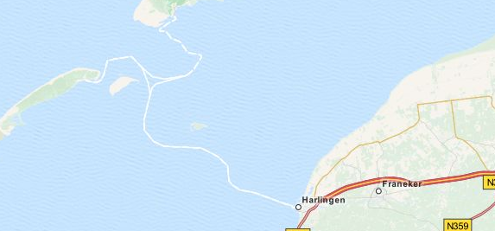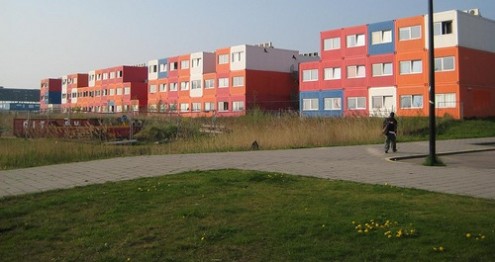 An unnamed Dutch woman was threatened with imprisonment for failing to insure her non-existent car in March of this year.
An unnamed Dutch woman was threatened with imprisonment for failing to insure her non-existent car in March of this year.
She was saved from that fate by a sympathetic judge in Noord Brabant who felt that the way the justice department hid behind its automated processes lacked care. The justice department should have noticed that something was amiss when they tried to repossess the uninsured and, most importantly, non-existent car. After all, why would a person own license plates but not a car?
Instead of stepping in and finding out what was going on, the justice department let its automated systems do the thinking and had the system pile up fine after fine until the computer said that now might be the time for imprisonment.
It is unclear if the accused will be taken out of the system or if the justice department will try and jail her again. The justice department seems to think that if the computer says so, you’re guilty, regardless of what a buttinsky judge thinks.
The blogosphere seems to believe this mess is the result of failing automation. I side with judge Wim Verjans who feels the humans hiding behind the computers are ultimately responsible.
Keeping the remainder of a punishment after the original punishment fell away because there were no grounds for punishment is a classical Dutch meme. The saying ‘Barbertje moet hangen’ (Babs must hang) stems from this principal. It was novelist Multatuli who wrote the story that started the meme—his Max Havelaar took a stand against the Dutch colonial system in 1860, but the underlying bureaucracy that pushes people around like they are nothing lives on. The unjust law with which alleged traffic offenders are pushed into this bureaucratic mess is called the Wet Mulder and was only introduced in 1989.


 ABN Amro’s mortgage portfolio has decreased by 0.3 billion euro because house owners have been making extra payments using their holiday bonuses, the troubled bank writes in its
ABN Amro’s mortgage portfolio has decreased by 0.3 billion euro because house owners have been making extra payments using their holiday bonuses, the troubled bank writes in its  The Netherlands’ favourite scientific fraudster, Diederik Stapel, is at it again.
The Netherlands’ favourite scientific fraudster, Diederik Stapel, is at it again.  The three major Dutch banks—ING, ABN Amro and Rabobank—are set to introduce ‘mobile payments’ to unsuspecting consumers in two weeks,
The three major Dutch banks—ING, ABN Amro and Rabobank—are set to introduce ‘mobile payments’ to unsuspecting consumers in two weeks, 
 A 34-year-old from Groningen paid for his drug addiction by stealing expensive Lego and Playmobil kits,
A 34-year-old from Groningen paid for his drug addiction by stealing expensive Lego and Playmobil kits, 

